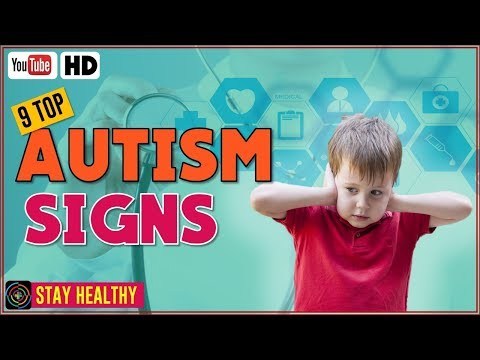The main features of autism are problems with social communication and interaction.
See your GP or health visitor if you notice any of the following signs of autism in your child or if you’re concerned about your child’s development.
Spoken language
delayed speech development (for example, speaking less than 50 different words by the age of two), or not speaking at all
frequent repetition of set words and phrases
speech that sounds very monotonous or flat
preferring to communicate using single words, despite being able to speak in sentences
Responding to others
not responding to their name being called, despite having normal hearing
rejecting cuddles initiated by a parent or carer (although they may initiate cuddles themselves)
reacting unusually negatively when asked to do something by someone else
Interacting with others
not being aware of other people’s personal space, or being unusually intolerant of people entering their own personal space
little interest in interacting with other people, including children of a similar age
not enjoying situations that most children of their age like, such as birthday parties
preferring to play alone, rather than asking others to play with them
rarely using gestures or facial expressions when communicating
avoiding eye contact
Behaviour
having repetitive movements, such as flapping their hands, rocking back and forth, or flicking their fingers
playing with toys in a repetitive and unimaginative way, such as lining blocks up in order of size or colour, rather than using them to build something
preferring to have a familiar routine and getting very upset if there are changes to this routine
having a strong like or dislike of certain foods based on the texture or colour of the food as much as the taste
unusual sensory interests – for example, children with ASD may sniff toys, objects or people inappropriately
